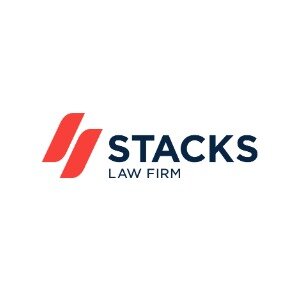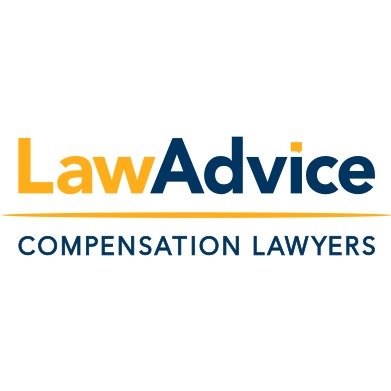Best Accidents & Injuries Lawyers in Hornsby
Share your needs with us, get contacted by law firms.
Free. Takes 2 min.
List of the best lawyers in Hornsby, Australia
Australia Accidents & Injuries Legal Articles
Browse our 1 legal article about Accidents & Injuries in Australia written by expert lawyers.
- What to Do After a Serious Car Accident in Australia
- Most injury claims in Australia must start within strict time limits - commonly 28 days to 12 months to lodge benefits claims and up to 3 years to sue. Minors and latent injuries have special rules. Serious car accidents are covered by state CTP schemes like TAC (VIC), SIRA-CTP (NSW),... Read more →
About Accidents & Injuries Law in Hornsby, Australia
Accidents & Injuries law in Hornsby, Australia, is a critical area of legal practice focused on providing justice and compensation to individuals who suffer harm due to the negligence or misconduct of others. This area of law covers various incidents, including road accidents, workplace injuries, medical negligence, and public liability cases. In Hornsby, as in the rest of New South Wales, the legal framework is designed to ensure that victims receive appropriate compensation for their injuries and any related financial losses.
Why You May Need a Lawyer
There are several common situations where individuals may require legal assistance involving Accidents & Injuries:
- Road Accidents: If you've been injured in a motor vehicle accident, a lawyer can help you navigate the complexities of insurance claims and, if necessary, initiate legal proceedings for compensation.
- Workplace Injuries: If you're injured at work, legal guidance can ensure you receive the entitled benefits, including worker's compensation, and explore further legal recourse if employer negligence is involved.
- Medical Negligence: If you suffer from inadequate medical care, a lawyer can assess your case and pursue claims to address any resultant harm.
- Public Liability: Accidents that occur in public spaces due to unsafe conditions can entitle the injured party to claims; a lawyer can help establish liability and secure compensation.
Local Laws Overview
In Hornsby and across New South Wales, several key laws govern Accidents & Injuries claims:
- Motor Accidents Injuries Act 2017: This legislation addresses compensation related to road accidents, covering the process for claiming statutory benefits and damages.
- Workers Compensation Act 1987: This act details the rights and responsibilities related to compensation for workplace injuries, including medical expenses and rehabilitation support.
- Civil Liability Act 2002: This act provides the framework for assessing liability and damages in public liability and medical negligence cases.
Frequently Asked Questions
What should I do immediately after being involved in an accident?
Seek medical attention right away and report the incident to the relevant authorities. If possible, document the scene with pictures and note any witness information.
How long do I have to file a claim for injury compensation?
The time limit for filing a claim, known as the statute of limitations, can vary depending on the type of accident but often ranges from three to six years. It’s crucial to seek legal advice promptly for more specific guidance.
Can I claim compensation if I was partially at fault for the accident?
Yes, under the concept of contributory negligence, you may still be entitled to compensation, although the amount may be adjusted based on your level of fault.
How is the compensation amount determined?
Compensation is typically calculated based on factors such as the severity of the injury, medical costs, loss of earnings, and other related expenses.
Do all injury cases go to court?
Not necessarily. Many cases are settled through negotiation or alternative dispute resolution methods without the need for court proceedings.
What are my legal entitlements in a workplace injury case?
You’re generally entitled to workers' compensation, which can cover medical expenses, rehabilitation costs, and a portion of your lost wages.
How can a lawyer assist with a public liability claim?
A lawyer can help establish the responsible party's liability by gathering evidence, negotiating with insurers, and representing you in court if necessary.
What if the insurance company denies my claim?
If an insurance company denies your claim, a lawyer can help review the denial, gather necessary evidence, and appeal the decision.
Is there a cost for the initial consultation with a lawyer?
Many personal injury lawyers offer a free initial consultation to review your case and discuss potential strategies.
What should I bring to my first meeting with a lawyer?
Bring any relevant documentation, such as medical records, police reports, insurance correspondence, and any other documentation related to the accident.
Additional Resources
For further assistance, several resources and organizations can provide guidance and support for accidents and injuries:
- NSW State Insurance Regulatory Authority (SIRA): Provides information and guidance on workers' compensation and motor accident insurance.
- Australian Lawyers Alliance: A national association of lawyers and other professionals dedicated to protecting people's rights may offer a useful directory of local lawyers.
- Legal Aid NSW: Offers free legal services to those eligible in NSW, which can be a valuable resource if you cannot afford private legal services.
Next Steps
If you believe you require legal assistance for an accident or injury case in Hornsby, the following steps are recommended:
- Consult with a lawyer specializing in personal injury law to evaluate your case.
- Gather any necessary documentation and evidence related to your injury and the accident.
- Discuss your legal options thoroughly, including potential compensation entitlements and the legal process involved.
- Consider both litigation and out-of-court settlement options, weighing the benefits and risks of each.
- Make an informed decision in conjunction with your lawyer's advice about how to proceed with your claim.
Lawzana helps you find the best lawyers and law firms in Hornsby through a curated and pre-screened list of qualified legal professionals. Our platform offers rankings and detailed profiles of attorneys and law firms, allowing you to compare based on practice areas, including Accidents & Injuries, experience, and client feedback.
Each profile includes a description of the firm's areas of practice, client reviews, team members and partners, year of establishment, spoken languages, office locations, contact information, social media presence, and any published articles or resources. Most firms on our platform speak English and are experienced in both local and international legal matters.
Get a quote from top-rated law firms in Hornsby, Australia — quickly, securely, and without unnecessary hassle.
Disclaimer:
The information provided on this page is for general informational purposes only and does not constitute legal advice. While we strive to ensure the accuracy and relevance of the content, legal information may change over time, and interpretations of the law can vary. You should always consult with a qualified legal professional for advice specific to your situation.
We disclaim all liability for actions taken or not taken based on the content of this page. If you believe any information is incorrect or outdated, please contact us, and we will review and update it where appropriate.
Browse accidents & injuries law firms by service in Hornsby, Australia
Hornsby, Australia Attorneys in related practice areas.









